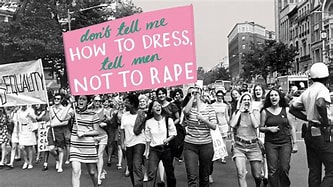Why Powerful Women Are Still Fighting Sexism
Introduction
In a world that prides itself on progress and equality, the persistent undercurrent of sexism remains a significant barrier for women in various sectors, particularly in Hollywood and politics. Despite the strides made by powerful women, many still find themselves grappling with systemic sexism that undermines their achievements and perpetuates gender inequality. This article delves into the complexities of sexism in these industries, exploring why powerful women continue to fight against ingrained biases and what this means for the future.
Understanding Systemic Sexism
What is Systemic Sexism?
Systemic sexism refers to the institutionalized practices and policies that perpetuate gender inequality. Unlike overt discrimination, systemic sexism is often subtle and embedded within the structures of society, making it difficult to identify and combat. It manifests in various ways, including unequal pay, lack of representation in leadership roles, and cultural narratives that diminish women’s contributions.

The Historical Context
Historically, women have faced significant barriers in both Hollywood and politics. From being relegated to stereotypical roles in film to being excluded from decision-making positions in government, the roots of systemic sexism run deep. Understanding this history is crucial for recognizing the ongoing challenges faced by women today.
The Landscape of Hollywood
The Gender Gap in Film
Despite the increasing visibility of female filmmakers and actresses, Hollywood still struggles with gender parity. According to a report by the Annenberg Inclusion Initiative, only 31% of speaking characters in film are female. This disparity not only reflects a lack of representation but also influences the types of stories that are told.
The Impact of the #MeToo Movement
The #MeToo movement has been a watershed moment for addressing sexual harassment and discrimination in Hollywood. It has empowered women to speak out against their experiences and demand accountability. However, while it has raised awareness, many argue that it has not led to substantial changes within the industry’s power dynamics.
Women in Politics: A Challenging Terrain
Underrepresentation in Leadership Roles
Women remain significantly underrepresented in political leadership positions worldwide. As of 2022, only 26% of national parliamentarians globally were women. This lack of representation hampers women’s ability to influence policies that affect their lives and perpetuates a cycle of inequality.
The Double Standard
Women in politics often face a double standard regarding their behavior and appearance. While male politicians may be judged on their policies and leadership qualities, female politicians frequently find themselves scrutinized for their looks or personal lives. This focus distracts from their qualifications and contributions.
The Intersection of Hollywood and Politics
Cultural Narratives Shaping Perceptions
Hollywood plays a significant role in shaping cultural narratives about women in power. Films often depict female leaders as either overly ambitious or emotionally unstable, reinforcing stereotypes that undermine women’s capabilities. These portrayals can influence public perceptions of real-life female politicians.

The Importance of Representation
Representation matters—not just on-screen but also in political offices. When women see themselves reflected in positions of power, it inspires future generations to pursue leadership roles. However, the lack of diverse female voices in both Hollywood and politics perpetuates systemic sexism.
The Fight Against Systemic Sexism
Advocacy and Activism
Many powerful women are actively fighting against systemic sexism through advocacy and activism. Organizations like Time’s Up and Women’s March have mobilized efforts to address gender inequality across various sectors. These movements emphasize solidarity among women and aim to create lasting change.
Legal Challenges
Legal battles have also been instrumental in combating systemic sexism. High-profile cases have brought attention to discriminatory practices within both Hollywood and political institutions. For example, lawsuits addressing pay disparities have highlighted the need for transparency and accountability.
The Role of Men as Allies
Engaging Men in the Conversation
While women are at the forefront of fighting sexism, engaging men as allies is crucial for creating meaningful change. Men hold significant power within both Hollywood and politics; their support can help dismantle systemic barriers and promote gender equality.

Challenging Toxic Masculinity
Addressing toxic masculinity is essential for fostering an environment where women can thrive. By challenging traditional notions of masculinity that equate power with dominance, men can contribute to a culture that values collaboration and respect for all genders.
The Future: A Path Towards Equality
Building Inclusive Workplaces
Creating inclusive workplaces is vital for promoting gender equality in both Hollywood and politics. This includes implementing policies that support work-life balance, equitable pay practices, and mentorship programs for aspiring female leaders.
Encouraging Diverse Storytelling
In Hollywood, encouraging diverse storytelling can help shift cultural narratives surrounding women. By amplifying the voices of underrepresented groups—whether through films, television shows, or documentaries—society can challenge stereotypes and promote understanding.
Read This: The Evolution of Fashion Trends: A Look Back at the Last Decade
Conclusion: Continuing the Fight Against Sexism
Despite significant progress made by powerful women in Hollywood and politics, systemic sexism remains a formidable challenge. As these industries continue to grapple with issues of representation and equality, it is essential to recognize that the fight against sexism is far from over.
By advocating for change, engaging men as allies, and promoting inclusive practices, we can work towards a future where gender equality is not just an aspiration but a reality. The journey may be long, but with determination and solidarity, we can dismantle the barriers that hold women back from achieving their full potential.
FAQs
1. What is systemic sexism?
Systemic sexism refers to institutionalized practices that perpetuate gender inequality within society’s structures, affecting women’s opportunities and rights.
2. How has the #MeToo movement impacted Hollywood?
The #MeToo movement has raised awareness about sexual harassment in Hollywood but has struggled to create substantial changes within the industry’s power dynamics.
3. Why is representation important in politics?
Representation ensures diverse voices are heard in decision-making processes; it inspires future generations to pursue leadership roles when they see themselves reflected.
4. How can men support gender equality?
Men can support gender equality by engaging as allies, challenging toxic masculinity norms, advocating for women’s rights, and promoting inclusive practices within their spheres of influence.
5. What steps can be taken to combat systemic sexism?
Combating systemic sexism involves advocacy for policy changes, legal challenges against discrimination, promoting diverse storytelling in media, and building inclusive workplaces that support all genders equally.

